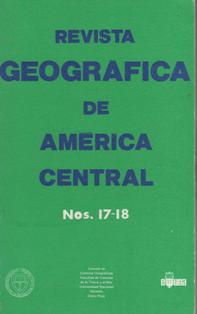ALGUNOS LINEAMIETOS GENERALES PARA EL MARCO TEORICO DEL ESPACIO
Keywords:
categoría del espacio, totalidad social, análisis marxista clásicoAbstract
En este articulo se estudia la categoría del espacio como una instancia, un elemento estructural de la totalidad social, en donde ocurre un proceso social específico. Mediante la introducción de la instancia espacial, en el análisis marxista clásico, junto a la instancia económica, jurídica, política e ideológica, se tratara de avanzar en esta corriente de pensamiento científico. Existe una relación dialéctica entre las relaciones sociales y las relaciones espaciales, esta relación le permite una autonomía a la instancia espacial.
La producción del espacio desde los inicios, mediante la relación hombre-naturaleza, hasta su forma más evolucionada, la ciudad, se realiza mediante la intervención del hombre con acciones individuales, colectivas y acciones estatales. Al mismo tiempo el espacio es construido, destruido y reconstruido, en esta acción la clase dominante lleva la iniciativa y contribuye a la producción del espacio de acuerdo con sus intereses.
SUMMARY
In this article the category of the space is studied as an instance, a structural element of the social totality, where there happens a social specific process. By means of the introduction of the spatial instance, in the Marxist classic analysis, close to the economic, juridical, political and ideological instance, it was a question of advancing in this current of scientific thought. A dialectical relation exists between the social relations and the spatial relations; this relation allows him autonomy the spatial instance.
From its beginnings, by means of a man - nature relationship, up to its most revolutionized form, the city; the spatial production is a accomplished by means of the intervention of the man with individual, collective actions and state actions. At the same time the space it is constructed, destroyed and reconstructed, in this action the dominant class takes the initiative and contributes to the production of the space of accordance with its interests.
RESUME
cet article on étudie la catégorie de l'espace comme une instance, un élément structurel de la totalité sociale, où un processus spécifique. Grâce à l'introduction de l'space comme instance, de l'analyse marxiste classique, au même titre que l’économique, juridique, politique et idéologique, on essaye faire progresser ce courant de pensée scientifique. On propose l’existence d’ une relation dialectique entre les relations sociales et les relations spatiales, ce qui permet une autonomie à l'instance spatiale.
La production del espace, les origines, se fait selon la relation un homme – nature. Ceci continue jusqu'à sa forme la plus sophistiquée: la ville. Elle se réalise par l'intervention de l'homme par des actions individuelles, collectives et des actions étatiques. Durant ce temps l'espace est construit, détruit et reconstruit, mais c’est toujours classe dominante qui impose les initiatives et finalement ses intérêts.
Downloads
How to Cite
Issue
Section
License
Proposed policy for journals offering Open Access
Authors publishing their works in the Journal acknowledge and agree to the following terms:
a) Authors retain the copyrights to their works and guarantee the Journal the right to be the first to publish their works, under the Creative Commons License Attribution-NonCommercial-ShareAlike 4.0 International, CC BY-NC-SA 4.0 International (https://creativecommons.org/licenses/by-nc-sa/4.0/deed.es), which allows others to share works upon complying with the acknowledgment of authorship and mention of the Journal as the original publisher of the work.
b) Authors are permitted to separately establish additional agreements for the non-exclusive distribution of the official edition of the work published in the Journal (for example, authors may desire to place the work in an institutional repository or incorporate it into a book that is to published elsewhere) so long they acknowledgment to recognize the Journal as the original publisher. The aforementioned additional agreements must respect the terms of the non-profit character and sharing philosophy of the original license (CC BY-NC-SA 4.0 International, https://creativecommons.org/licenses/by-nc-sa/4.0/deed.es).
c) Authors are encouraged to archive the post-print or editor/PDF version in Open Access repositories.






 REVGEO is licensed under https://creativecommons.org/licenses/by-nc-sa/4.0/deed.es
REVGEO is licensed under https://creativecommons.org/licenses/by-nc-sa/4.0/deed.es
.svg_4.png)

_(1).png)
_(1)_(1)_(1)_1.png)
(2)(1)(1)(1).png)
